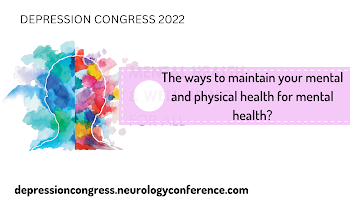Depression in Teenagers: Causes and Signs
A change from the adolescent's prior attitude and conduct is one
of the indications and symptoms of teen depression and can result in serious
distress and issues at home, at school, in social situations, or in other
aspects of life. The intensity of depression symptoms can vary, but your teen
may experience the following emotional and behavioral changes.
Be on the lookout for emotional shifts like:
• Sadness, which may include uncontrollable sobbing bouts, frustration
or fury, even over trivial issues;
• A sense of despondency or emptiness
• Anger or irritability
Behavioral changes
• Changes in appetite, such as decreased
appetite and weight
loss or increased appetites for food and weight gain; fatigue and a loss of
energy; insomnia or excessive sleeping use of drugs or alcohol
What's normal and what's not
It might be challenging to
distinguish between teenage sadness and the ups and downs that come with being
a teenager. Consult your teen. Find out if they appear to be able to control
difficult emotions or if life is too much for them.
Causes
- Although
the actual origin of depression is unknown, several different problems
could be at play. These consist of:
- Brain chemistry - Neurotransmitters are bodily
and naturally occurring substances in the brain that send signals to
various regions of the body and the brain. Depression results from changes
in the way that nerve receptors and nervous systems work when these
chemicals are aberrant or damaged.
- Hormones - Depression may be brought on
by or triggered by changes in the hormone balance in the body.
- Inherited traits - Depression may be
bro
ught on by or triggered by changes in the hormone balance in the body. - Complications
- Depression
that goes untreated can lead to emotional, behavioral, and health issues
that have an impact on every aspect of your teen's life. Teenage
depression-related complications could, for instance:
•
Substance abuse
and alcoholism
•
Academic issues
•
Family disputes and interpersonal issues
•
Suicide attempts or actual suicide
Prevention
- There
is no foolproof method to stop depression. However, these methods might be
useful. Your teen should be inspired to:
·
Take steps to control stress
·
Practice self-care
·
Reach out for friendship and
social support
·
Get treatment at the earliest sign of a problem

.png)

Comments
Post a Comment